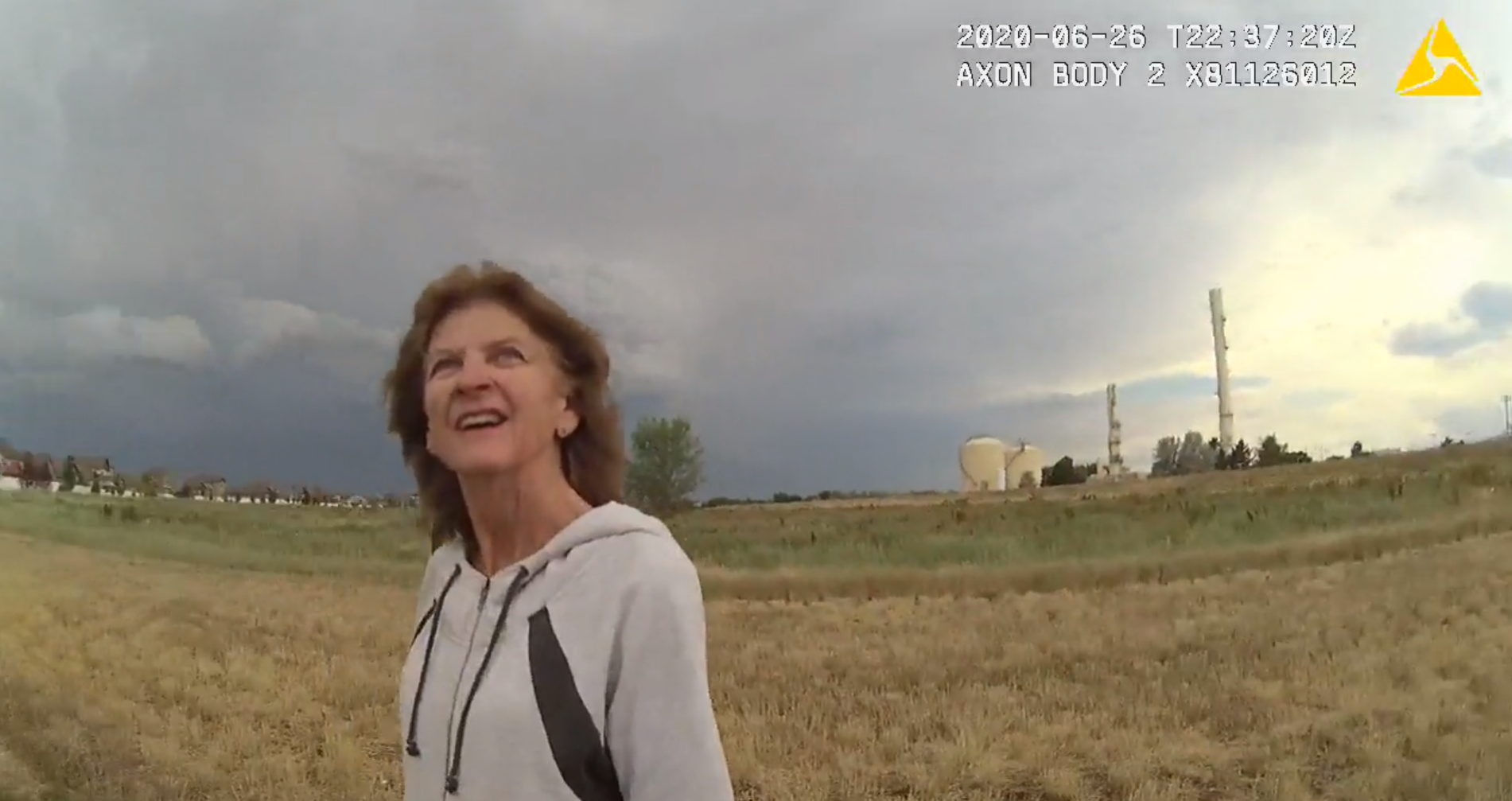
Patricia Gragg feared for her life. She’s called the police dozens of times. At one point, someone was trying to break into her house. Then, there was someone upstairs with a gun trying to kill her. It was very real to her, but it was all in her mind.
Gragg, who is 76, has Lewy Body dementia, which causes her to have hallucinations. Thankfully, her encounters with police over the years have been relatively benign, said her daughter-in-law, Jodi Gragg. That’s why an incident that’s gone viral involving Loveland police and a woman with dementia has given Gragg pause.
“It was pretty hard to watch that video,” said Gragg of the encounter between 73-year-old Karen Garner and an officer which was recorded on a police body camera.
The incident in Loveland began when Garner walked out of a local Walmart with $14 worth of merchandise. Workers at the store stopped her and took back the merchandise but it prompted someone in the store who saw the incident to call the police.
Later, as Garner was walking home, police body camera footage shows Loveland officer Austin Hopp approach Garner, grab her arm, put it behind her back and force her to the ground. After the video was made public, Hopp resigned from the Loveland Police Department.
As the country reckons with the aftermath of the murder of George Floyd by police and a burgeoning recognition of the nation’s long history of police brutality against people of color, what happened in Loveland sheds light on the lesser-known concern about police treatment of those with dementia.
Jodi Gragg said after watching the police body camera footage of the incident in Loveland, she could easily see a situation between her mother-in-law and police escalating into a similar confrontation.
“The officer that responded to that call didn't seem to take more than a second or two to try to even find out what Ms. Garner was thinking … so that was pretty discouraging to see,” Gragg told Colorado Matters.
Experts in dementia say it’s critical for police officers to learn possible signs of dementia, including confusion, hallucinations and aimless wandering. They also say all officers should be taught tactics on how to interact with someone with a condition like Alzheimer’s, something that isn’t always included in standard police training.
“Training is generally on … use of force, laws of arrest and search and seizure,” said Eric Bianchi, a former police sergeant in Irvine, California, who now trains some first responders in Colorado through the Alzheimer’s Association on how best to approach these interactions.
Bianchi said one challenge is that there’s often so much to present to new recruits during the limited time allocated for police training.
“It comes down to how much available time do they have for specialized services and specific skills,” he said.
Bianchi said the standard tactics police are taught to use with citizens generally are often counterproductive when it comes to people with dementia.
“We're trained to approach a situation as though we need to take control … and be assertive.
Bianchi said this approach only escalates the problem because people with dementia often mirror the behavior and emotions of others. He trains officers to speak quietly to a person they suspect has dementia, approach them at eye-level, remove them from noisy environments and refrain from asking any complicated questions.
Another critical piece of advice, Bianchi said, is for law enforcement to “lean in” to a person’s reality, no matter how delusional it may be.
“If you have someone who is absolutely sure that their house is on fire or there's someone upstairs who's threatening to shoot them and you recognize that … dementia … may be involved, go upstairs or somehow work with that person at their reality,” Bianchi said. “It does make a difference.”
Shoplifting, like the encounter between police and Karen Garner in Loveland, is also a fairly common behavior among people suffering from Alzheimer’s disease or other forms of dementia, Bianchi said.
Jodi Gragg said her mother-in-law with Lewy Body dementia has had encounters in stores that could escalate unnecessarily.
“She's done some kind of crazy things here and there,” Gragg said. “She's had these delusions that she can just give a cashier a code and walk out the store without paying for things.”
A bill currently making its way through the Colorado legislature would create a commission to examine what type of specific training first responders need around Alzheimer’s and dementia.
And the time is now, said Amelia Schafer, who heads up the Colorado Chapter of the Alzheimer’s Association.
“Encounters between police and people with dementia are only going to increase, said Schafer.
“Every single day, 10,000 baby boomers are turning 65 [and] we know that it's only going to become more important for our whole community to understand Alzheimer's and dementia.”









